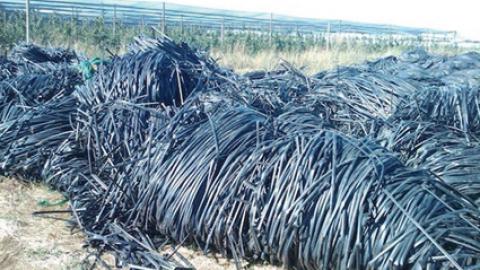A research study was carried out in order to understand how the plastic industrial sector behaves towards SSCM (Sustainable Supply Chain Management). As procurement is a crucial part to the supply chain, we also sought to understand how this sector reacts to Environmentally Responsible Procurement Management (ERPM).

This study proved the positive influence of SSCM practices on environmental and economic performance of the companies, indicating that the Portuguese plastics industry is implementing some sustainable management measures along its supply chain and has already seen the effort of these measures reflected in the economic and environmental performance.
Overall, the study showed that although there is some activity of the Portuguese plastics industry regarding sustainability, many sustainability practices and solutions are still not being implemented or valued properly in the Portuguese plastics industry.
The shift towards sustainable paradigms seems to be still at a very early stage, which is perhaps the main reason why it was not possible to investigate in detail to what extent the studied variables moderate the relationship between the implementation of sustainable practices and performance.
The fact that there is no positive impact of most of the analyzed items on performance is a result of the plastics industry companies’ preference, still, for short-term and reactive decisions rather than long-term planned and proactive decisions that clearly embrace an environmentally responsible strategy.
That is, investment is still directed towards immediate operational solutions in order to obtain immediate profitability and not towards long-term, more sustainable solutions for the future.
Equally important, we highlight the presence of numerous SMEs in the plastics industry, so it should be noted that there is a clear need to rethink support to SMEs, whose scarce resources may not be sufficient to face the paradigm of change that lies ahead, which is unavoidable, based on environmental sustainability of a ‘new’ circular economy.
Since it is common knowledge that aspects such as sustainability and circular economy are the way to a safe future, as mankind depletes the planet’s resources at breakneck speeds, it is urgent that companies and public policies are oriented towards a long-term investment to achieve sustainable development and increase environmental performance. The plastics industry has an important role in the path of sustainable development that is not being reflected in practice, on the one hand perhaps due to a lack of internal company resources, more so in a time of pandemic that takes strategic focus away from SMEs in an environment of daily survival, and on the other hand due to a lack of sufficient government stimulus to drive change or to remove industry reticence to apply investment on its own initiative.
It is common in this industry for management to focus on short-term measures that show immediate financial performance, ignoring long-term decisions with slower but potentially more effective and lasting sustainable results. Given the reactive policies in this industry, it is understandable that perhaps with strategic state incentives it is possible to foster the feeling of the need for change, in order to achieve sustainable goals.
A paradigm shift is imperative to guarantee the well-being of future generations. The solution to this renewal lies in making entrepreneurs in this industrial sector aware to take more evident strategic measures. The world has changed. Climate change is starting to be more evident and felt. If plastic is a ‘polluting’ material for the general public, companies and the industry as a whole have to take long-term measures to adapt their practices to the new reality. It is not a mere incremental innovation. There is a clear paradigm shift that needs to be embraced that requires rethinking reactive strategies and embracing proactive strategies.
On the other hand, if the environmentally responsible management of purchases is important, the responsible management of the supply chain is crucial, since it implies a common inter-company relational perspective among the various stakehloders.
Complementarily, it is also up to the Government to impose these changes, urgently, with a more proactive perspective, encouraging companies to create and implement ecocentricity, traceability, environmental culture and social responsibility policies, in order to create a more favorable environment for more evident environmental sustainability practices in the plastics sector.
The creation of these policies also involves alignment with academic research communities and the training of managers imbued with an environmentally sustainable culture.
The importance of top managers in the adoption of sustainable practices in the purchasing area should be highlighted, as they are the guarantor of the application of good purchasing practices, actively supporting and encouraging them. It is important that companies cultivate the ecological awareness and responsibility of their employees, increasing their knowledge and technical skills in the area of sustainability, through training practices, acculturation and mastery of the practice of the concept, a process that universities can integrate and be fundamental in the paradigm shift of a society that wants to be greener.
To read the complete study : https://www.sciencedirect.com/science/article/pii/S2772390922000610?via%3Dihub

